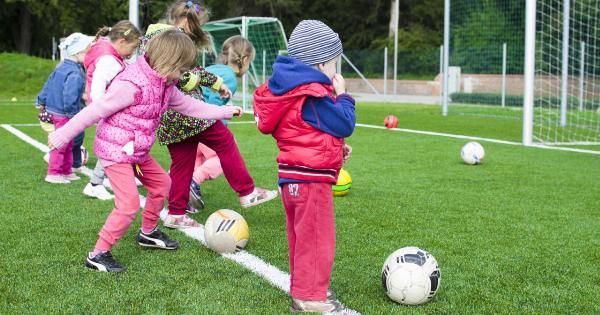Children are naturally curious and have a knack for pushing boundaries. As parents or guardians, it is our responsibility to provide them with the structure and guidance they need to thrive.
However, there are instances where children are not given proper boundaries, and the consequences can be shocking.
The Importance of Boundaries
Boundaries serve as a framework for children’s behavior, helping them understand what is acceptable and what is not. They provide a sense of security and teach important life lessons such as responsibility, respect, and self-discipline.
Without boundaries, children may struggle to develop crucial social and emotional skills.
The Downside of No Boundaries
When children lack boundaries, chaos often ensues. Here are some examples of what can happen when children are not given proper guidelines:.
1. Increased Aggression
Without clear limits, children may become more prone to aggressive behavior. They might hit, kick, or engage in other harmful actions towards their peers or even adults.
These aggressive tendencies can lead to strained relationships and potential harm to themselves or others.
2. Lack of Respect for Authority
Boundaries help children understand and respect authority figures such as parents, teachers, and other caregivers.
However, without these boundaries, children may develop a disregard for authority, resulting in challenges with following instructions, rebellion, and difficulty in school settings.
3. Poor Self-Discipline
Setting boundaries allows children to develop self-control and self-discipline.
When boundaries are absent, children may struggle with impulsivity, making it difficult for them to regulate their emotions, resist temptations, and make responsible choices.
4. Increased Risk-Taking Behavior
Children without boundaries often seek thrill and excitement through risky behavior. They may engage in dangerous activities such as experimenting with drugs, engaging in unsafe sexual practices, or participating in criminal acts.
This puts them at a higher risk of physical and emotional harm.
5. Reduced Empathy and Social Skills
Boundaries help children understand the impact of their actions on others and develop empathy. Without boundaries, children may struggle to grasp the concept of empathy, leading to difficulties in building and maintaining healthy relationships.
6. Lower Academic Achievement
When children lack structure, their academic performance tends to suffer. Without guidelines and boundaries, they may struggle to focus, complete tasks on time, and follow classroom rules.
This can significantly impact their academic achievement and future opportunities.
7. Difficulty with Problem-Solving
Children who haven’t been taught boundaries may have difficulty in problem-solving. They may struggle with decision-making, finding appropriate solutions, and adapting to changes.
This can hinder their ability to navigate challenges and succeed in various aspects of life.
8. Blurred Moral Compass
Setting boundaries helps children develop a clear sense of right and wrong. Without these guidelines, children may have a blurred moral compass and struggle to differentiate between acceptable and unacceptable behavior.
This may lead to increased unethical actions and questionable decision-making.
9. Anxiety and Insecurity
Children thrive with predictable routines and consistent boundaries. When these elements are missing, it can contribute to feelings of anxiety and insecurity.
Children may feel lost and uncertain about their place in the world, leading to emotional turmoil and potentially long-lasting mental health issues.
10. Lack of Independence
Boundaries provide children with the necessary skills and tools to become independent individuals. Without them, children may struggle to develop a sense of autonomy, leading to dependence on others and an inability to make decisions on their own.
Conclusion
It is crucial for parents and caregivers to establish and uphold boundaries for children. Setting clear guidelines helps them navigate the world around them, promotes healthy development, and equips them with essential life skills.
Without boundaries, children may face a multitude of challenges and experience negative consequences that can impact their well-being and future success.






























